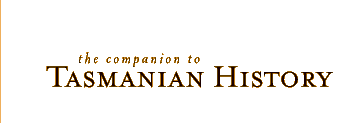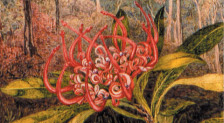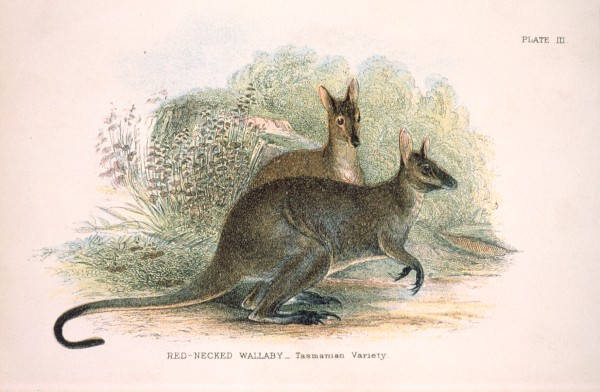 |
 |
|
Aboriginal Traditional Diet
Over the past 30,000 years, dramatic changes in climate, and hence food resources, occurred in Tasmania. Indigenous peoples successfully adapted their food resource management to cope with those changes, for example, using fire to modify the vegetation. On the eve of British settlement/invasion, key foods of animal origin included kangaroo and wallaby, possum and wombat, muttonbird and penguins (both the flesh and the eggs) and various molluscs and crustacea. Their plant menu included fruits such as the native cherry, native currant and kangaroo apple, and vegetables such as the native potato and native carrot. (The adjective 'native' emphasises that these were quite different species from their European namesakes.) They also ate plants unfamiliar to later Tasmanians, such as honeysuckle nectar, pith from manferns, and the 'native bread' fungus. The fermented sap of the cider gum apparently provided a weakly alcoholic beverage, used occasionally. Two of the modern nutritionist's recommended food groups were absent: cereal grains and milk (apart from extended breast-feeding of infants). However, early European medical visitors considered Indigenous people to be in excellent health. The British arrival drastically disrupted Aboriginal society and its food culture – by 1830 a million sheep grazed on lands once the territory of grazing marsupials. In recent years, the Palawa (Aboriginal) community has sought to revive the gathering and use of traditional foods. Chemical analysis has demonstrated the excellent nutritional qualities of the muttonbird, and it is likely that other traditional foods have equally desirable nutritional profiles. The Aboriginal food culture can offer valuable insights to the wider community. Further reading: D Woodward et al, 'Nutritional analysis of the flesh and oil of yolla, the Tasmanian mutton bird Puffinus tenuirostris', Australian Journal of Nutrition and Dietetics 52, 1995; D Woodward, 'Diet in Tasmania over a thousand generations', THS 3/1, 1990. David Woodward |
Copyright 2006, Centre for Tasmanian Historical Studies |
